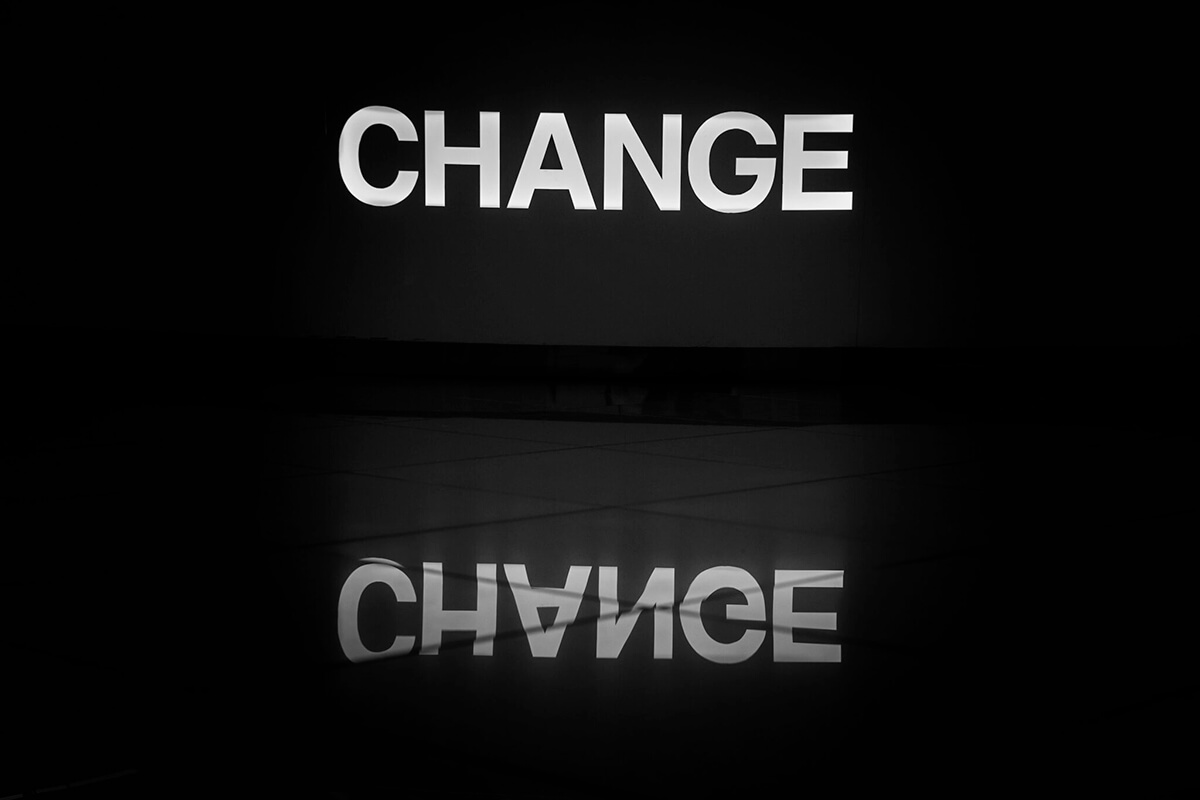Anyone who has been in a long-term relationship or marriage knows one thing for certain.These types of relationships can bring significant joy and advantages to your life, which is why so many of us still choose to be “coupled” rather than stay single.
In fact, studies show that studies show that even though marriage may not happen as early as it used to, most young adults are still choosing to cohabitate with a partner and commit to having a fully monogamous, romantic relationship with one person.
And, even older adults are either staying married longer, or choosing to enter back into a serious living relationship even after divorce.
Why Do Most People Choose Marriage or Cohabitation?
Throughout history, our society has been geared toward marriage.
For centuries, marriage was more of a transaction between families, a way to build wealth or allegiance against enemies.
And in more recent times, marriage or moving in with someone has become more of a personal decision in many cultures, and one that is based more on love, companionship, support, and friendship.
Regardless of the times or reasons, marriage and cohabitation have always been viewed as a means of survival, of making a situation better than what it is without the other person.

But – if there is substance abuse involved – that survival may begin to be threatened by forces stronger than the marriage or the romantic relationship alone, no matter how committed both people are to making it work.
When a Couple Struggles with Substance Abuse
Marriage and cohabitation relationships can have their challenges. From raising children to dealing with finances, every couple will struggle with various issues along the way.
But when there is a problem with an alcohol or drug addiction, all the other issues in the relationship are going to be exacerbated and much more difficult to deal with and solve.

In fact, research now suggests that more than 21 million Americans struggle with some sort of alcohol or drug abuse addiction, and yet only around 10% of those receive addiction treatment at any phase of their lives.
Even more concerning is the fact that – for a couple where both partners are wrestling with substance abuse issues, there is a higher likelihood that the alcohol or drug abuse won’t be treated at all.
The reason for this is sad, but true.
Most couples who are in a relationship where alcohol or drug addiction is playing a role for both people, it may be much less likely that either person in the marriage or domestic partnership is going to be able to convince themselves or the other person that a substance abuse treatment program may be the answer to many of their problems.
Alcohol and drug abuse can affect everything in a relationship from the way the couple deals with each other, to their family, their finances, and their careers.
The bottom line is this.
If you and your partner have been brave and honest enough to decide that seeking treatment for your alcohol and/or drug abuse is the next step for you and your relationship, then you are both to be congratulated for your efforts already.
Choosing to find a substance abuse treatment program is not easy. And, it’s even more difficult when there is another person who must be involved in the decision to seek treatment.
Even if you have both come to the conclusion that your alcohol and drug abuse problems may need to be addressed in an addiction treatment program, you may still be wondering if it’s really possible to treat your substance use disorder together.
After all, part of what has potentially gotten you both to the point of having a serious drug or alcohol addiction may be the fact that you’ve been doing it together, enabling each other’s poor choices instead of seeing them as something to be concerned about.
This may lead many couples to wonder if dealing with their alcohol or drug addiction is really something that can be done together.
Is drug and alcohol rehab a smart thing to do as a couple? Or does treating your substance abuse issues together make your chances of relapsing higher?
Should My Partner and I Seek Treatment for our Substance Abuse Issues Together?
Deciding to seek treatment for a substance abuse problem is hard enough.
But trying to decide if you and your partner should be seeking treatment together is even more difficult.
Substance abuse and addiction are complex problems that are often associated with a variety of factors, such as family dynamics, mental health needs, family history, and other underlying issues that all can lead to a person having an alcohol or drug abuse problem that is impossible for them to control.

Excessive and uncontrollable drug or alcohol use is a disease. And, like many diseases, learning how to understand it and treat it has been studied extensively over time and new information continues to be presented on how best to do this.
How to understand it and treat it for a couple who are both experiencing drug and alcohol addiction is an even more complicated process, since there is much more information that needs to be studied in order to treat both parties in a relationship.
But here is the bottom line.
Whether or not you and your partner should be seeking treatment for your drug or alcohol addiction together is going to greatly depend on the dynamics of your relationship, your home and work life situations, your commitment to your relationship and getting sober, and whether or not you tend to work better as a team or as individuals.
The Dynamics of Your Relationship
The first and most important factor in determining whether or not you and your partner should consider going to a drug and alcohol rehab program together is going to depend heavily on the dynamics of your relationship together.
Here are some of the most significant dynamics to consider before you commit to any alcohol or drug addiction treatment program together:

Has there been any sort of domestic violence in your relationship?
If there has been domestic violence – whether it be physical violence, emotional abuse, financial abuse, or sexual abuse – deciding to attend treatment together for your alcohol or drug abuse may not be the best idea.
Depending on the severity of the abuse and whether or not you have gotten any help to deal with it will help decide whether or not the domestic violence in your relationship will keep either or both of you from the recovery process being successful.
Unfortunately, oftentimes physical and emotional abuse goes hand in hand with alcohol abuse or drug abuse.
Knowing whether or not this type of domestic abuse will keep you and/or your partner from getting sober may be something that can be determined by a good therapist who is skilled in couples therapy, particularly when there has been abuse in the relationship.
Through some intense therapy sessions, your therapist will be able to help determine whether the domestic abuse that has occurred in your relationship has been too damaging to allow the two of you to attend a substance abuse treatment program together.
Has There Been an Imbalance of Power in Your Relationship?
Again, as with domestic abuse, if there is a power dynamic that is imbalanced in your relationship, this may make addiction treatment as a couple a bit more challenging for the two of you.
But trying to decide if you and your partner should be seeking treatment together is even more difficult.
Relationships survive best when both parties have equal vote and voice in decisions that are made by the couple.
If one person has a more significant amount of power when it comes to decisions, then it is going to be harder for the couple to work together through the oftentimes arduous process of seeking and maintaining sobriety longterm.

Again, a good therapist who is skilled in couple’s behavioral therapy will be able to help you both decide if you should seek a substance abuse facility that can treat you both simultaneously, or if you would be better off to consider seeking your own addiction treatment centers as individuals.
Your Home Situation
Another important factor when deciding if a couples addiction treatment center may be the right choice for you and your partner is the type of home life and work situation you both currently have.
Whether or not you have minor children at home may be the biggest challenge when it comes to your home life situation and your ability to consider a couples addiction treatment center, particularly if both you and your partner would like to consider a drug and alcohol rehab residential treatment program.
What is a Residential Treatment Program for couples?
Couples drug rehab centers that offer clients the opportunity to stay in the facility throughout their treatment process are usually referred to as residential treatment centers.

Often called “inpatient rehab”, these facilities will be designed to emulate a person’s regular living environment.
For a couple who has decided to attend an inpatient rehab center together, usually they will have the option to live together while at the facility and have full access to things like their own personal kitchen, living area, and bedroom.
Some inpatient rehab centers will even allow a couple to bring their pet or other home comforts that will make their time at the facility feel more like home.
Inpatient alcohol and drug rehab centers that have these levels of amenities can be ideal for the couple who wants to learn how their home environment can contribute to maintaining sobriety, or what red flags may need to be removed so as to minimize their chance for a relapse to occur.
Children and the Challenges of an Inpatient Alcohol and Drug Rehab Center
Now that you know what is entailed with an inpatient alcohol and drug rehab center, it is probably clear why this may be a challenging treatment option to consider for the couple who still has minor children at home.
Having one parent enroll in an inpatient alcohol and drug rehab program will be challenging for a family to navigate.
Having both parents enroll in such a treatment program can be nearly impossible for a family, depending on their support system and the commitment of other family members.

Most inpatient substance use disorder programs ask that a couple commits for 30 to 60 days of residential living at the facility, depending on the type of substance addiction both people are wrestling with and the severity of their alcohol and drug addiction.
Whether or not they need intense mental health treatment will also factor into the length of stay for both partners.
Being away from minor children can be problematic for a couple, especially for that length of time. But, for a couple who has come to the decision that the best course of action for their substance use is to commit to an inpatient couples rehab program together, then finding ways for it to work for their family may be the only option.
Your Work Situation
Though your work situation will most likely take less priority than your home situation, it is still going to be a big factor in deciding what sort of treatment options both you and your partner can consider when seeking help for your drug and/or alcohol addiction issues.
If you are someone who works from home, you may be wondering if you can continue to maintain your current work schedule and workload while you are attending addiction treatment.
The answer to this question is going to greatly depend on what type of treatment option you and your partner choose.
For example, if you and your partner decide that an outpatient treatment center is the right course of action for you, being able to work during the day may make sense, especially if your therapy sessions and support group meetings are held at night.
On the other hand, if an inpatient drug or alcohol rehab center is going to be a better option for you, then working during the day may not be possible.
Inpatient drug and alcohol rehab centers tend to be fully immersive program, encouraging patients to focus the majority of their time on their addiction and course of treatment.
From behavioral couples therapy to individual therapy, most of a patient’s day is going to be filled with activities and talk sessions that are going to be centered around the substance abuse and their addiction recovery plan of action.
Trying to maintain a regular work schedule during this type of intensive work may be difficult or even discouraged by the therapists, physicians, and mental health services administration at the inpatient facility they have chosen.
It may also be something that an employer has a tough time supporting.
Though many employers may be understanding about your situation (and some laws may even state they need to support you through rehab services) the nature of your job and workload may make it challenging for your direct supervisor or employer to be able to accommodate you taking substantial time off work in order to go into an inpatient treatment facility.
Finally, even if you both have employers that are supportive of your desire to get sober and maintain sobriety, your family’s financial situation may make it hard for both you and your spouse or partner to enroll in a couples rehab program at the same time.
Even if an employer is willing to give you the time off work for treatment, they may not be willing (or able) to pay you for the time off.
In a situation like this one, it may be financially impractical for both of you to enter treatment or enroll into any sort of couples rehab at the same time.
Finding out whether or not you can take the appropriate time off work to seek treatment for your substance abuse disorder will be an important factor in determining what sort of addiction help you can engage in and whether or not you and your partner can afford – physically, emotionally and mentally – to enroll in a treatment program together.
Your Commitment to Your Relationship
Another important aspect to consider when you are thinking of going to couples rehab with your partner is how committed are both of you to your relationship and your future as a couple.
This may seem like a no-brainer, but it is going to play a big role, not only in your rehab experience but in maintaining sobriety long after your time in substance abuse treatment is over.

Being in a committed relationship takes energy, patience, compromise, and care. Relationships need constant attention in order for them to continue to flourish and grow.
For the person who is struggling to rid themselves of an alcohol or drug addiction, having the time and energy to dedicate to a relationship may not be possible.
Getting sober can take all the tools and resources that a person would otherwise be putting into their partnership.
On the other hand, if two people are in a strong and stable relationship, going into a couples rehab program together may serve to make that relationship even stronger once sobriety is possible. Many couples who decide to seek out drug or alcohol rehab together will find that the only real issue in their relationship has been the dependency on these abusive substances.
One thing to consider before committing to couples rehab would be to talk to a behavioral couples therapy counselor together beforehand.
A well-skilled couples therapist who also understands the dynamics of addiction and relationships can help both of you decide if your relationship is ready for couples rehab.
Are You Ready to Make the Change?
If you’ve decided that couples rehab is the right choice for you and your partner then we are ready to help you take the next steps for a life free of drug and alcohol addiction.
Located in San Clemente, California, the House of the Rising Son is a full-service substance abuse treatment center that specializes in couples rehab for all forms of substance use. We’re perfectly located for those seeking couples rehab Dana Point, Irvine, or anywhere else in Southern California.
Our skilled staff is highly trained to help you and your partner reach your full potential and maintain the life you were destined to have before drugs and/or alcohol began robbing you of it.
The rehab facilities at the House of the Rising Sun are set up to help you both through everything from medical detox needs, withdrawal symptoms, mental health services, and a variety of therapy options including family therapy, group therapy, and couples counseling sessions.

If you believe that you would benefit from professional support during your recovery process, then we would love it if you would reach out to us today and speak with us today.
One of our highly trained counselors is always available to talk, 24 hours a day, 7 days a week.
If you are ready to take back control of your life, give us a call at (866) 507-1035. Or, keep reading to learn more about what we do.
Sobriety isn’t easy, whether you are a couple or an individual. But with the right resources, it is possible. Get ready to change your life for good.

